Wiberg oils
Premium oils - best quality at the best price
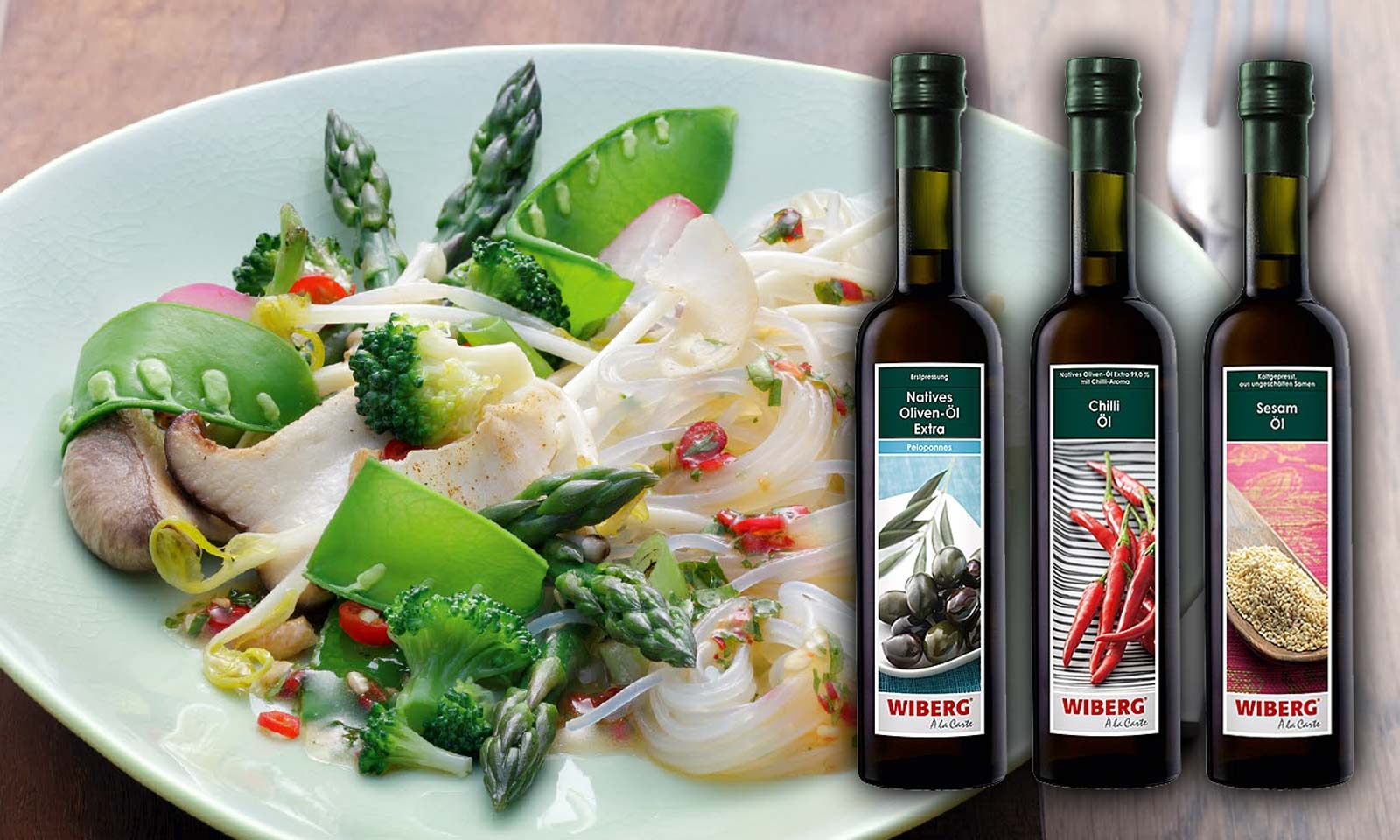

For over 50 years, restaurateurs and food producers have seen Wiberg as a reliable partner, leading developer and innovative problem solver for spices.
Wiberg PREMIUM OILS
WIBERG oils are made exclusively from oilseeds with a guaranteed degree of purity and are obtained using the classic stamp press process.
This is the only way the spice professional can live up to his promise to give people the highest enjoyment and taste experience. Because you know: we go to the end of the world for the best qualities and the most delicious enjoyment.
copyright text: wiberg.eu
Wiberg Seductive delicacies for salad enjoyment
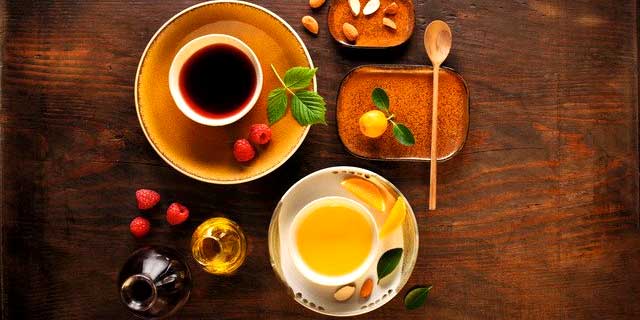
copyright photo: wiberg.eu
oils and fats
They are available daily on our menu. Targeted and used with care, they can turn simple dishes into a sophisticated experience for our palate. Too often, however, fat is carelessly brought into the kitchen game, despite the fact that it is usually hidden inconspicuously in numerous foods.
Which tasks do fats have?
Fats perform a variety of tasks in the body. They are an ideal energy storage, play a role in the construction of cell membranes and serve as a transport for fat-soluble vitamins. also
protect the body from cold and serve as a cushion for internal organs. How are fats built up? Fats consist of glycerine and fatty acids. According to their molecular structure, the fatty acids are more saturated
(no double bond), monounsaturated and polyunsaturated form (one to several double bonds). All fats consist of a combination of these three groups of fatty acids, with one type generally dominating. Most of the fatty acids can be produced by the body itself, but not the so-called essential fatty acids, which must be ingested with the food.
copyright text: wiberg.eu
Wiberg PREMIUM OILS

copyright photo: wiberg.eu
Greek - Argentinian farmer`s salad
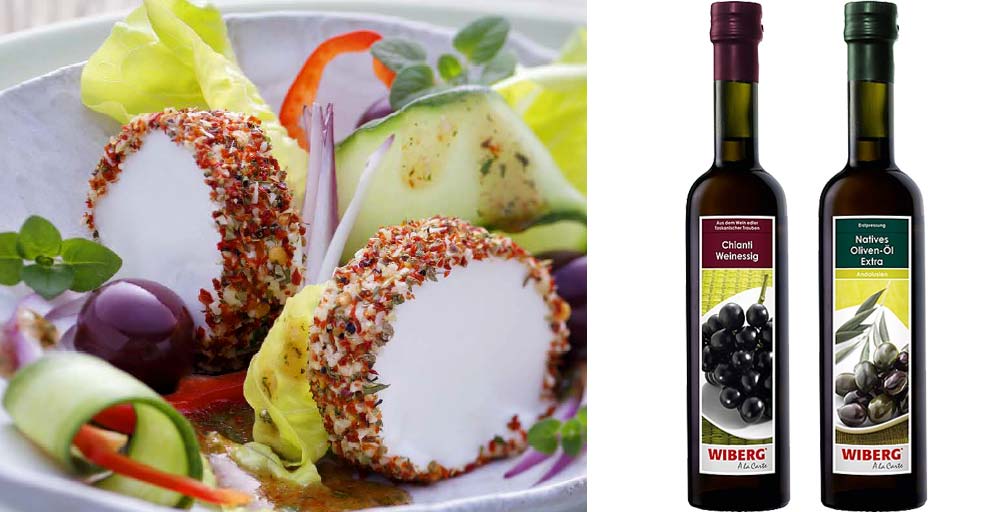
copyright photo: wiberg.eu
Greek-Argentinian Farmer`s Salad Ingredients:
250 g lettuce,
150 g red onions cut into wedges,
300 g cucumbers, cut into long, thin slices,
250 g red pepper cut into strips,
100 g black olives,
300 g sheep`s cheese, sliced
WIBERG products: Grill Argentina, Chianti wine vinegar,
Extra virgin olive oil from Andalusia, pure fine salt,
Whole black pepper (from the mill)
PREPARATION
Arrange the salad with onions, cucumbers, peppers and olives. Roll sheep`s cheese in Grill-Argentina.
Mix Grill-Argentina with Chianti wine vinegar and olive oil, season with salt and pepper and marinate the salad with it.
What is the significance of the different fatty acids?
Saturated fatty acids
The amount of saturated fat in the diet has the greatest negative effect on blood cholesterol levels. They are mainly found in meat, sausage products, eggs, milk and milk products (butter, cheese), pork fat, frying fat and mainly in animal products. However, coconut oil, pastries and many ready meals are also a source of saturated fatty acids.
Monounsaturated fatty acids
Fats with a high proportion of monounsaturated fatty acids are now just as important in long-term health care as they are in a heart-friendly diet. Good sources are: olives, rapeseed, nuts (almonds, hazelnuts, peanuts, macadamia, pecan), avocados and their oils and some spreadable fats.
Polyunsaturated fatty acids
There are different groups of polyunsaturated fatty acids. The omega-3 (alpha-linolenic acid) and the omega-6 fatty acids (linoleic acid) are essential fatty acids. Numerous vegetable oils are rich in omega-6 fatty acids and a large part of the European population unconsciously consumes significant amounts of them. Omega-3 fatty acids protect the heart and blood vessels in many ways: They lower triglyceride levels and total cholesterol, but strengthen HDL cholesterol (good cholesterol). They can also have a positive effect on blood circulation, blood pressure and inflammatory conditions
show diseases. Of our foodstuffs, fish (sea and also freshwater fish), some fish products (e.g. silverfish), walnuts, rapeseed, soy, linseed and their oils are good to very good suppliers of omega-3 fatty acids.
copyright text: wiberg.eu
-

Wiberg Vinegar Oil Menage, with native olive oil and Aceto Balsamico PGI
500 ml, 2 x 250 ml € 36,85 * (€ 73,70 / Liter)
NOW AVAILABLE NOW AVAILABLE Delivery of the goods within 36 hours of order and successful payment. Please also note the information on payment and shipping.item number: 33005
NOW AVAILABLE Delivery of the goods within 36 hours of order and successful payment. Please also note the information on payment and shipping.item number: 33005 -

Wiberg Extra Virgin Olive Oil, cold extraction, Andalusia
500ml € 15,73 * (€ 31,46 / Liter)
NOW AVAILABLE NOW AVAILABLE Delivery of the goods within 36 hours of order and successful payment. Please also note the information on payment and shipping.item number: 11193
NOW AVAILABLE Delivery of the goods within 36 hours of order and successful payment. Please also note the information on payment and shipping.item number: 11193 -

Wiberg Extra Virgin Olive Oil, cold pressed, peleponnes
500 ml € 17,86 * (€ 35,72 / Liter)
NOT AVAILABLE Currently not available. When this product will be available is not known. Please also note the information on payment and shipping.item number: 15822
Currently not available. When this product will be available is not known. Please also note the information on payment and shipping.item number: 15822 -

Wiberg Styrian pumpkin seed oil, PGI, 100% pure
500ml € 26,49 * (€ 52,98 / Liter)
NOW AVAILABLE NOW AVAILABLE Delivery of the goods within 36 hours of order and successful payment. Please also note the information on payment and shipping.item number: 11187
NOW AVAILABLE Delivery of the goods within 36 hours of order and successful payment. Please also note the information on payment and shipping.item number: 11187 -

Wiberg wild garlic oil, cold pressed, extra virgin olive oil with wild garlic extract
500ml € 19,86 * (€ 39,72 / Liter)
NOW AVAILABLE NOW AVAILABLE Delivery of the goods within 36 hours of order and successful payment. Please also note the information on payment and shipping.item number: 11188
NOW AVAILABLE Delivery of the goods within 36 hours of order and successful payment. Please also note the information on payment and shipping.item number: 11188 -

Wiberg basil oil, cold pressed, extra virgin olive oil with basil extract
500ml € 19,86 * (€ 39,72 / Liter)
NOW AVAILABLE NOW AVAILABLE Delivery of the goods within 36 hours of order and successful payment. Please also note the information on payment and shipping.item number: 11189
NOW AVAILABLE Delivery of the goods within 36 hours of order and successful payment. Please also note the information on payment and shipping.item number: 11189 -

Wiberg chili oil, cold-pressed, extra virgin olive oil with chili aroma
500ml € 19,86 * (€ 39,72 / Liter)
NOW AVAILABLE NOW AVAILABLE Delivery of the goods within 36 hours of order and successful payment. Please also note the information on payment and shipping.item number: 11190
NOW AVAILABLE Delivery of the goods within 36 hours of order and successful payment. Please also note the information on payment and shipping.item number: 11190 -

Wiberg thistle oil, cold pressed, from safflower seeds
500ml € 19,06 * (€ 38,12 / Liter)
NOW AVAILABLE NOW AVAILABLE Delivery of the goods within 36 hours of order and successful payment. Please also note the information on payment and shipping.item number: 11191
NOW AVAILABLE Delivery of the goods within 36 hours of order and successful payment. Please also note the information on payment and shipping.item number: 11191 -

Wiberg peanut oil, cold pressed
500ml € 18,13 * (€ 36,26 / Liter)
NOW AVAILABLE NOW AVAILABLE Delivery of the goods within 36 hours of order and successful payment. Please also note the information on payment and shipping.item number: 11192
NOW AVAILABLE Delivery of the goods within 36 hours of order and successful payment. Please also note the information on payment and shipping.item number: 11192 -

Wiberg sesame oil, cold pressed
500ml € 17,19 * (€ 34,38 / Liter)
NOW AVAILABLE NOW AVAILABLE Delivery of the goods within 36 hours of order and successful payment. Please also note the information on payment and shipping.item number: 11195
NOW AVAILABLE Delivery of the goods within 36 hours of order and successful payment. Please also note the information on payment and shipping.item number: 11195 -

Wiberg sunflower seed oil, cold pressed
500ml € 11,62 * (€ 23,24 / Liter)
NOW AVAILABLE NOW AVAILABLE Delivery of the goods within 36 hours of order and successful payment. Please also note the information on payment and shipping.item number: 11196
NOW AVAILABLE Delivery of the goods within 36 hours of order and successful payment. Please also note the information on payment and shipping.item number: 11196 -

Wiberg walnut oil, cold pressed, from hand-picked walnuts
500ml € 29,15 * (€ 58,30 / Liter)
NOW AVAILABLE NOW AVAILABLE Delivery of the goods within 36 hours of order and successful payment. Please also note the information on payment and shipping.item number: 11197
NOW AVAILABLE Delivery of the goods within 36 hours of order and successful payment. Please also note the information on payment and shipping.item number: 11197 -

Wiberg grape seed oil, cold pressed
500 ml € 26,49 * (€ 52,98 / Liter)
NOW AVAILABLE NOW AVAILABLE Delivery of the goods within 36 hours of order and successful payment. Please also note the information on payment and shipping.item number: 15823
NOW AVAILABLE Delivery of the goods within 36 hours of order and successful payment. Please also note the information on payment and shipping.item number: 15823 -

Wiberg citrus oil, cold pressed, extra virgin olive oil with citrus flavor
500 ml € 19,86 * (€ 39,72 / Liter)
NOW AVAILABLE NOW AVAILABLE Delivery of the goods within 36 hours of order and successful payment. Please also note the information on payment and shipping.item number: 15824
NOW AVAILABLE Delivery of the goods within 36 hours of order and successful payment. Please also note the information on payment and shipping.item number: 15824 -

Wiberg Extra Virgin Olive Oil, cold extraction, Andalusia
1 liter € 29,15 * (€ 29,15 / Liter)
NOW AVAILABLE NOW AVAILABLE Delivery of the goods within 36 hours of order and successful payment. Please also note the information on payment and shipping.item number: 11194
NOW AVAILABLE Delivery of the goods within 36 hours of order and successful payment. Please also note the information on payment and shipping.item number: 11194 -

Wiberg Extra Virgin Olive Oil, cold extraction, Andalusia
5 l € 125,62 * (€ 25,12 / Liter)
NOW AVAILABLE NOW AVAILABLE Delivery of the goods within 36 hours of order and successful payment. Please also note the information on payment and shipping.item number: 17074
NOW AVAILABLE Delivery of the goods within 36 hours of order and successful payment. Please also note the information on payment and shipping.item number: 17074 -
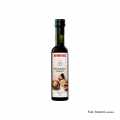
Wiberg macadamia nut oil, cold pressed, 100% pure, mild nutty
250 ml € 32,46 * (€ 129,84 / Liter)
NOW AVAILABLE NOW AVAILABLE Delivery of the goods within 36 hours of order and successful payment. Please also note the information on payment and shipping.item number: 19441
NOW AVAILABLE Delivery of the goods within 36 hours of order and successful payment. Please also note the information on payment and shipping.item number: 19441 -

Wiberg rapeseed oil, cold pressed
500 ml € 11,30 * (€ 22,60 / Liter)
NOW AVAILABLE NOW AVAILABLE Delivery of the goods within 36 hours of order and successful payment. Please also note the information on payment and shipping.item number: 21880
NOW AVAILABLE Delivery of the goods within 36 hours of order and successful payment. Please also note the information on payment and shipping.item number: 21880 -

Wiberg Buffet dispenser vinegar / oils, 3 places
1 pc € 69,27 * (€ 69,27 / piece)
NOW AVAILABLE NOW AVAILABLE Delivery of the goods within 36 hours of order and successful payment. Please also note the information on payment and shipping.item number: 26157
NOW AVAILABLE Delivery of the goods within 36 hours of order and successful payment. Please also note the information on payment and shipping.item number: 26157 -

Wiberg Chili Oil, Extra Virgin Olive Oil with Chilli Flavor
250 ml € 11,89 * (€ 47,56 / Liter)
NOW AVAILABLE NOW AVAILABLE Delivery of the goods within 36 hours of order and successful payment. Please also note the information on payment and shipping.item number: 29111
NOW AVAILABLE Delivery of the goods within 36 hours of order and successful payment. Please also note the information on payment and shipping.item number: 29111 -

Wiberg Styrian Pumpkin Seed Oil, PGI, 100% varietal
250 ml € 15,87 * (€ 63,48 / Liter)
NOW AVAILABLE NOW AVAILABLE Delivery of the goods within 36 hours of order and successful payment. Please also note the information on payment and shipping.item number: 29112
NOW AVAILABLE Delivery of the goods within 36 hours of order and successful payment. Please also note the information on payment and shipping.item number: 29112 -

Wiberg Extra Virgin Olive Oil, cold extraction, Andalusia
250 ml € 10,42 * (€ 41,68 / Liter)
NOW AVAILABLE NOW AVAILABLE Delivery of the goods within 36 hours of order and successful payment. Please also note the information on payment and shipping.item number: 29113
NOW AVAILABLE Delivery of the goods within 36 hours of order and successful payment. Please also note the information on payment and shipping.item number: 29113 -

Wiberg Almond Oil Plus Orange
500 ml € 21,98 * (€ 43,96 / Liter)
NOW AVAILABLE NOW AVAILABLE Delivery of the goods within 36 hours of order and successful payment. Please also note the information on payment and shipping.item number: 33004
NOW AVAILABLE Delivery of the goods within 36 hours of order and successful payment. Please also note the information on payment and shipping.item number: 33004 -

Wiberg BASIC rapeseed oil, cold-pressed, mildly steamed
5 l € 42,90 * (€ 8,58 / Liter)
NOW AVAILABLE NOW AVAILABLE Delivery of the goods within 36 hours of order and successful payment. Please also note the information on payment and shipping.item number: 34259
NOW AVAILABLE Delivery of the goods within 36 hours of order and successful payment. Please also note the information on payment and shipping.item number: 34259 -
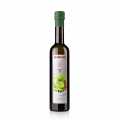
Wiberg Salad Oil
500 ml € 10,56 * (€ 21,12 / Liter)
NOW AVAILABLE NOW AVAILABLE Delivery of the goods within 36 hours of order and successful payment. Please also note the information on payment and shipping.item number: 40945
NOW AVAILABLE Delivery of the goods within 36 hours of order and successful payment. Please also note the information on payment and shipping.item number: 40945 -

Wiberg Salad Oil
5 l € 65,00 * (€ 13,00 / Liter)
NOW AVAILABLE NOW AVAILABLE Delivery of the goods within 36 hours of order and successful payment. Please also note the information on payment and shipping.item number: 40946
NOW AVAILABLE Delivery of the goods within 36 hours of order and successful payment. Please also note the information on payment and shipping.item number: 40946







